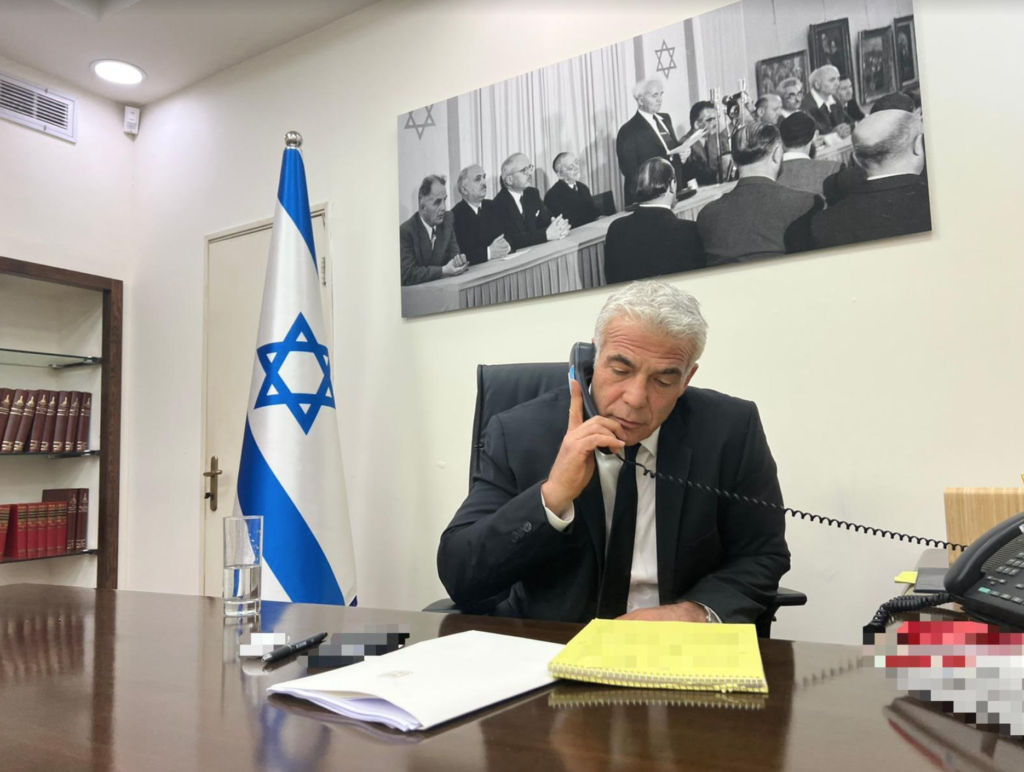
The Iran nuclear deal negotiations once appeared to be on the verge of a major breakthrough, but now look to be turning into a breakdown—and the current status depends on who is asked and when. What does seem evident is that a demand from Iran to end an investigation by the United Nations’ nuclear watchdog has become a major hold up to the sides reviving the 2015 nuclear accord, known as the Joint Comprehensive Plan of Action (JCPOA). Israel, meanwhile, is promoting the world powers’ resistance to Iranian demands as a diplomatic success.
On Sunday, a State Department spokesperson told The Mideast Update on background regarding the talks that “some gaps have closed in recent weeks but others remain.”
That slightly positive assessment stood in contrast to comments reported just days earlier. After the latest Iranian counterproposal, a senior Biden administration official was quoted by Politico on Thursday as saying they look to be “moving backwards”. Even a European diplomat was quoted in the article as saying Iran’s response was “not reasonable.”
The downturn in tone—after prior media reports had implied the negotiations were in a final stage—comes as the sides have been publicly disagreeing over the status of an International Atomic Energy Agency (IAEA) investigation into questionable nuclear activity by Iran. Tehran is demanding the review be closed out as part of a renewal of the nuclear deal with world powers. On Wednesday last week, the Iranian Fars News Agency quoted Head of the Atomic Energy Organization of Iran (AEOI) Mohammad Eslami as saying there would be no “re-implementation day” of the JCPOA if the “questions are not closed”. He said they “cannot back down” on that demand.
On the other side of the talks, White House Press Secretary Karine Jean-Pierre sounded equally determined on Friday. “Our position is crystal clear. Iran needs to answer—it’s crystal clear the investigations are not political. They are not leverage or bargaining chips,” said Jean-Pierre in comments to reporters posted to the White House website. She further said the matters under review by the IAEA would not come off the nuclear body’s agenda until the IAEA reports that they have been “clarified and resolved.”
Said Jean-Pierre, “We are unbending in our support for the IAEA’s independence. There should not be any conditionality between reimplementation of the JCPOA and investigations related to Iran’s legal obligations under the Non-Proliferation Treaty.”
While the status of the IAEA investigation appears to be a key sticking point in the talks with Iran, it’s unclear how many other negotiating points—if any—remain unresolved. In the comments to The Mideast Update, the State Department spokesperson said they “will not negotiate in public.”
“This is a negotiation, with regular back and forth,” said the spokesperson. “We are studying the [Iranian] response and coordinating with our E3 allies,” referring to the United Kingdom, France, and Germany.
Against that backdrop, Israeli Prime Minister Yair Lapid on Sunday cautiously said their diplomatic efforts to prevent a “dangerous” nuclear deal was “working.”
“The reservations that we have presented to the American administration have been taken into account. We have also spoken with our other partners,” said Lapid in comments published by Israel. “Demands have been made of the Iranians. It is not possible to discuss everything.”
Lapid’s promotion of Israel’s approach comes as an ongoing parade of Israeli officials either have or are in the process of speaking with key American officials. Up next is Mossad Director David Barnea, who is visiting with senior US officials in Washington, DC this week. According to an Israeli press release, Barnea’s visit “will focus on tightening security and intelligence coordination with the Americans regarding the Iranian nuclear issue.”
The trip follows a similar excursion by Israeli Defense Minister Benny Gantz in August, while Lapid spoke with US President Joe Biden last Wednesday. An Israeli recap of the call said the two national leaders “spoke at length about the negotiations on a nuclear agreement, and their shared commitment to stopping Iran’s progress towards a nuclear weapon. The leaders discussed recent events as well as Iran’s terrorist activity in the Middle East and beyond.”
The Israeli summary of the call said that President Biden “emphasized his deep commitment to the security of the State of Israel, and to preserving Israel’s capability to deter its enemies and to defend itself by itself against any threat.”
On the White House website, the American version of the call was phrased a little differently, but noted that “the President underscored US commitment to never allow Iran to acquire a nuclear weapon.”
That promise hangs in the background, and in the balance, as the nuclear talks shift from final to fraught. In the meantime, the Americans reiterated their determination in the negotiations. Said the US State Department spokesperson to The Mideast Update, “The President will only conclude a deal that he determines is in the national security interest of the United States.”
(By Joshua Spurlock, www.themideastupdate.com, September 4, 2022)
